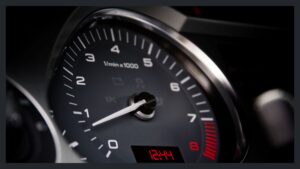
9 Reasons Your Car Stalls While Driving
There’s nothing worse than having your car’s engine suddenly stop while you’re driving. If this happens, pull over to the side of the road immediately before the wheels come to a complete stop.
When your engine suddenly stops, you may lose control of your vehicle, especially at high speeds. You may also notice that the engine no longer makes any noise. This problem can occur in both old and new cars.
The 9 Most Common Reasons Your Car Stalls Suddenly While Driving
There are several possible reasons why your car’s engine may suddenly stall while driving. To help you troubleshoot, here are the 9 most likely causes of this problem:
1) Engine Overheating
The most common reason for an engine to stall is overheating. When the combustion chamber burns air and fuel to create heat energy, that energy is converted into mechanical energy that runs the parts and components of your vehicle. Additionally, a generator can convert this energy into electrical energy for the vehicle’s electrical components. However, if there is not enough coolant in the engine to keep the temperature within the normal range, the pistons can actually start to melt. This will cause the engine to suddenly stop.
2) Low engine oil level
Oil keeps all the moving metal parts in the engine lubricated and allows them to operate with minimal resistance, so a lack of oil can have fatal consequences.
If there is an oil leak somewhere and the oil level falls below the minimum, the friction between the metal components will be so great that it can actually cause the engine to seize and stop. Moreover, if left unchecked, this can become a costly engine problem. That is why it is so important to check your oil level regularly.
3) Low Transmission Oil Level
Like engine oil, transmission oil also needs a certain amount to keep your car running. If you don’t have the proper amount of transmission fluid in your transmission, it can overheat and damage the gears inside, which can cause your engine to stall at any time while driving.
Like engine oil, you should regularly check that you have the proper amount of transmission fluid in your vehicle.
4) Faulty Motor Mounts
This is a fairly rare cause of engine failure, but it can happen if the engine mounts are broken or not properly reinstalled after the engine has been repaired.
If the engine mounts are broken or not properly used to mount the engine, they can cause the engine to vibrate excessively and cause the engine to stall due to damage to parts caused by the vibrations.
5) Electrical Issues
When an electrical issue occurs with the vehicle’s computer system or ignition system, it will no longer be able to send the correct electrical signal to the engine. This will eventually cause the engine to stall. Just before this happens, the check engine light on the dashboard may flash. In these cases, you should take your vehicle to a repair shop right before it stalls out while driving. You don’t want to take any chances if your check engine light comes on.
6) Faulty catalytic converter
Your vehicle’s exhaust system relies on the catalytic converter to cleanse the exhaust gases. But if there are too many impurities in the fuel or your car is driven too rich, the catalytic converter can’t keep up and eventually fails.
7) Timing belt/chain failure
Your vehicle is equipped with a timing belt or timing chain, and if this part fails, it can cause the engine to suddenly stop, with serious consequences.
The timing belt or chain is responsible for synchronizing the rotation of the crankshaft and camshafts. If it cracks or slips, it can cause the engine valves to contact the pistons, causing serious damage and engine failure.
8) Blown head gasket
A blown head gasket can leak coolant into the combustion chamber, causing the engine to overheat and fail. In some cases, a severely damaged head gasket can cause the engine to suddenly stop while driving. 9) Fuel System Issues
Fuel system issues such as clogged fuel filters, faulty fuel pumps, and damaged fuel lines can cause your engine to stall or die while driving. Without a continuous supply of fuel to your engine, it can’t function properly.
Warning Signs of Possible Engine Failure
Strange Sounds
Before your engine actually stalls while driving, you can get clues to a possible problem.
Abnormal Noises
Check to see if you hear any unusual noises coming from the engine, such as knocking, banging, or rattling. These abnormal noises may indicate a problem with the pistons, valves, or other internal components.
Screating noises may indicate a faulty belt or water pump, which can cause the engine to overheat.
Vibrations
If you feel any unusual shaking or vibrations while driving, especially in the steering wheel, floor, or seat, this could be a sign of a problem with the engine mounts, transmission, or other drivetrain components. These vibrations may increase when the engine is under load, such as when accelerating or driving up a hill. Decreased Performance
If you notice a significant decrease in your vehicle’s power or acceleration, this could indicate a variety of issues, including: B. Due to a clogged fuel filter, a faulty fuel pump, or a faulty sensor. Reduced fuel efficiency could also indicate an issue that could lead to engine failure (such as no fuel flow).
Warning Lights
Pay close attention to any warning lights that illuminate on your dashboard, especially the engine check light, oil pressure light, and temperature gauge. These are all designed to warn you of a potential problem before it causes more serious damage.
Rough Idling
If your engine idles rough or stalls frequently, it could be a sign of a bad sensor, clogged injectors, or vacuum leaks. These issues can cause your engine to lose power or stall unexpectedly while driving.

